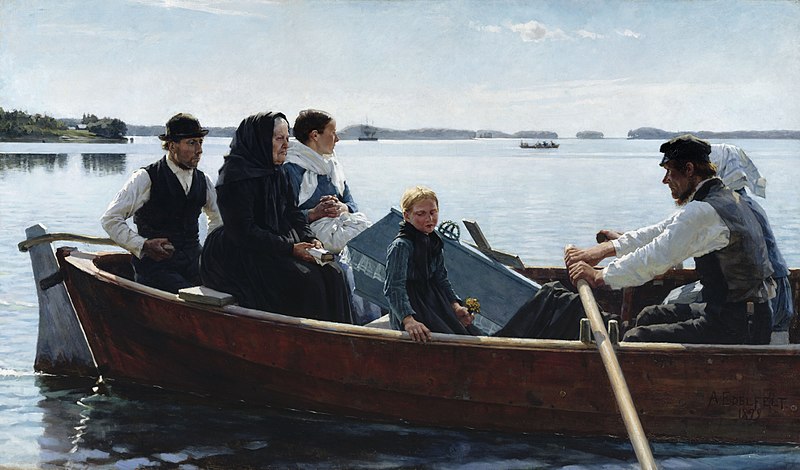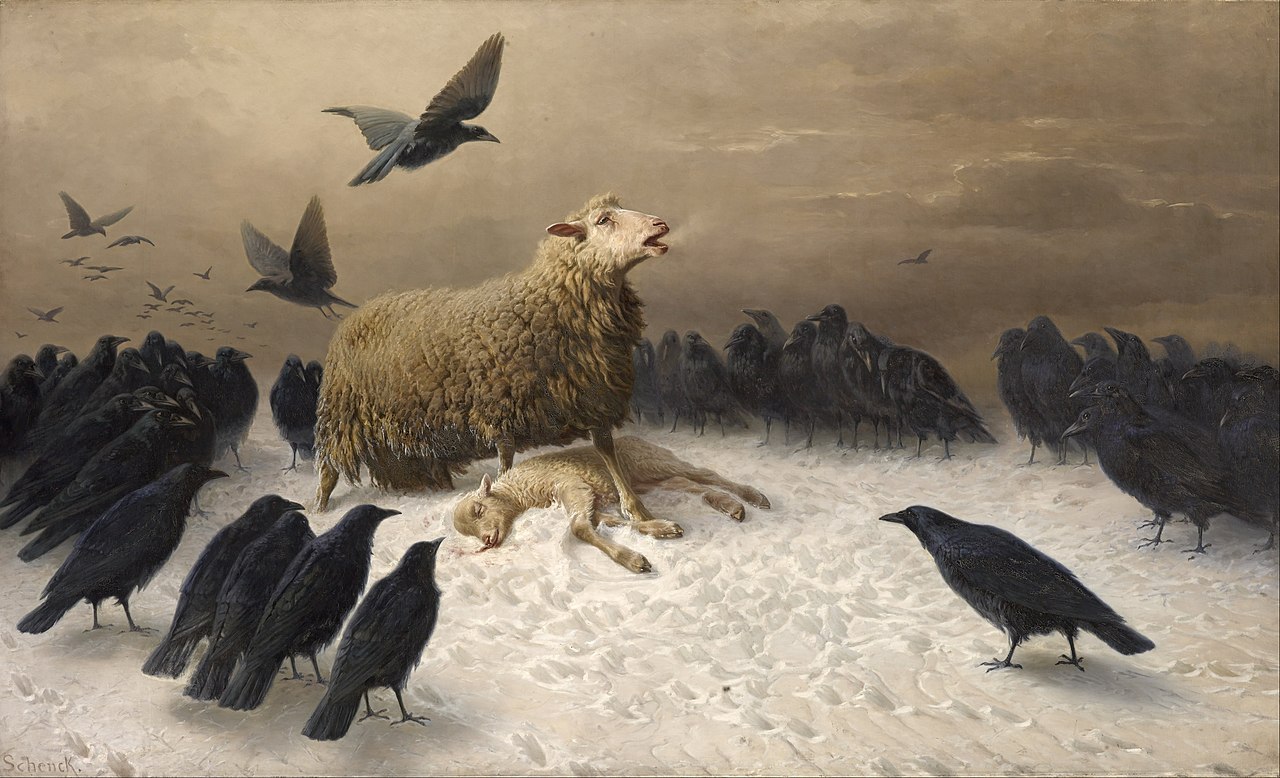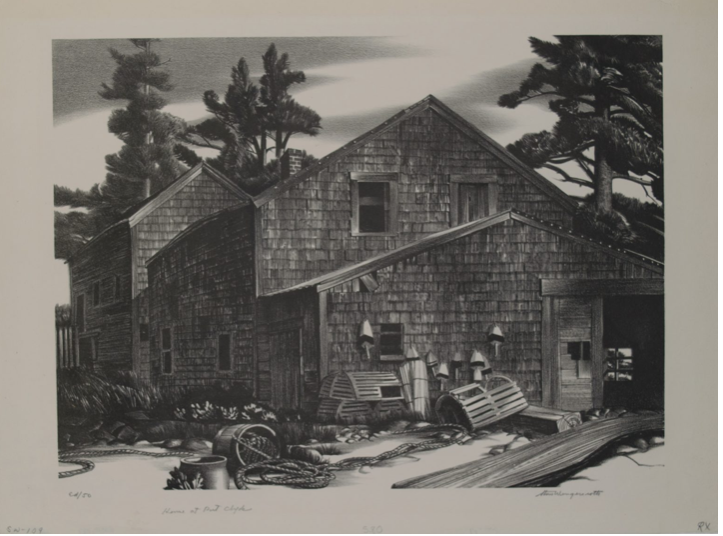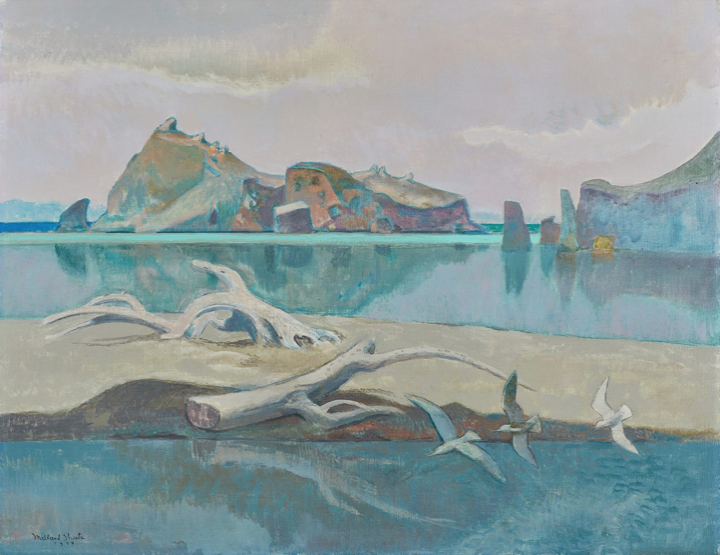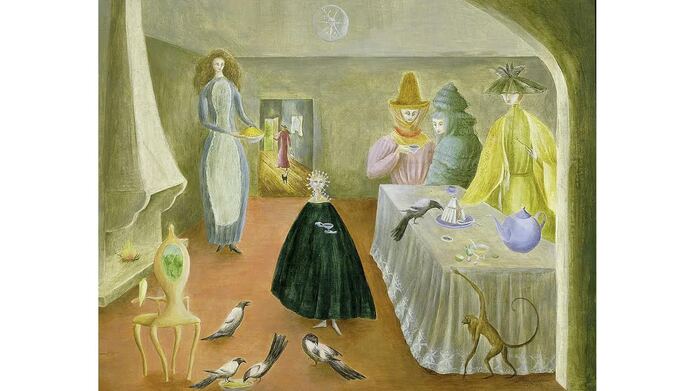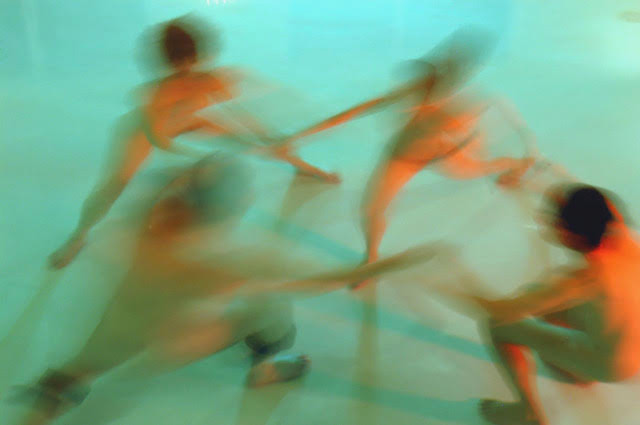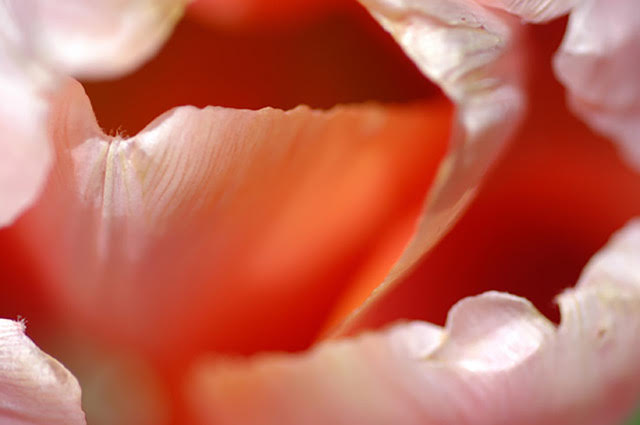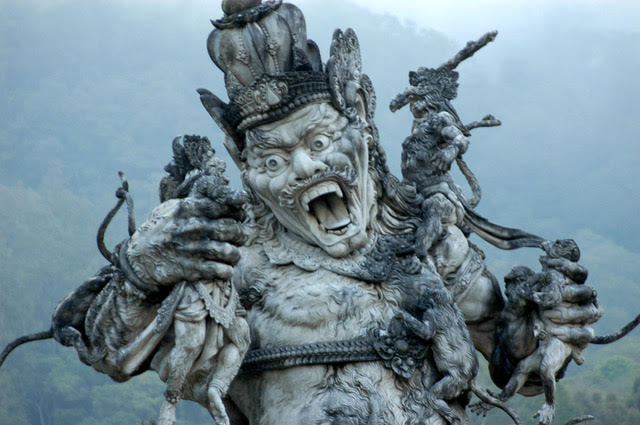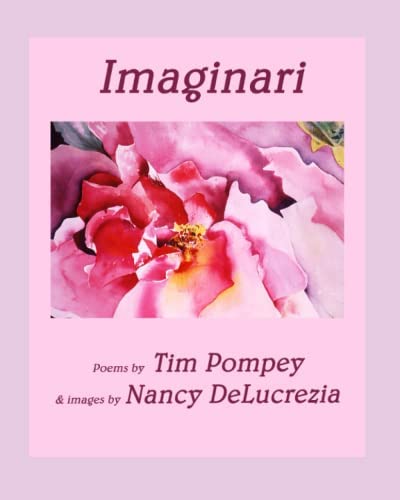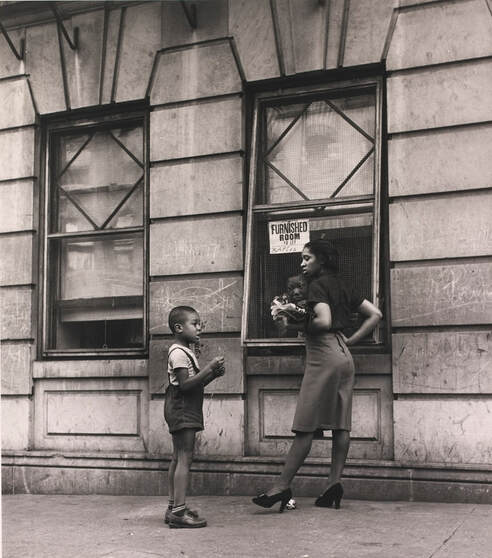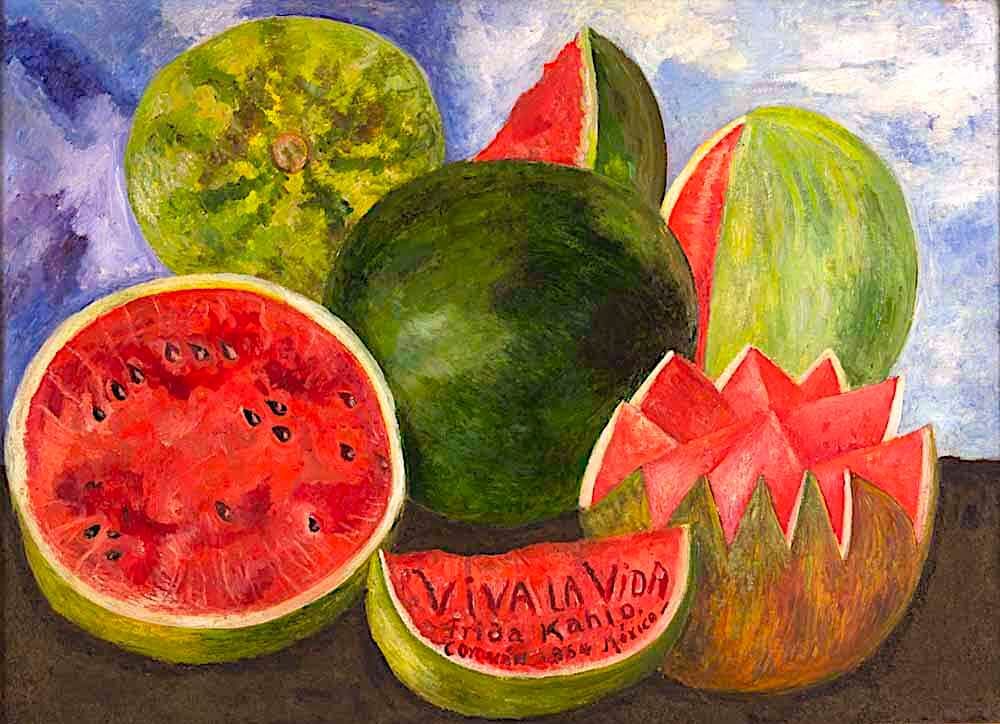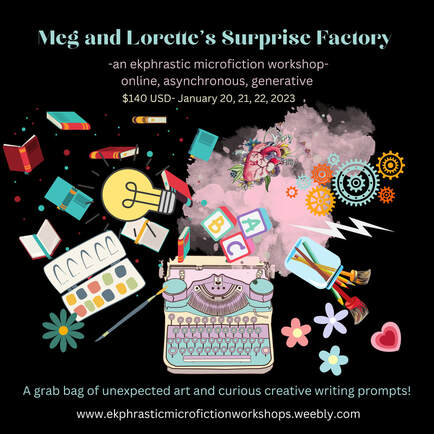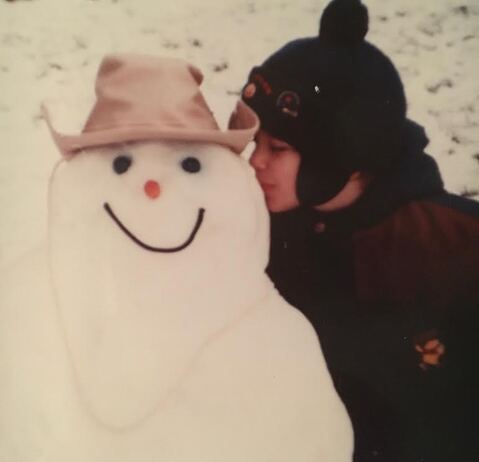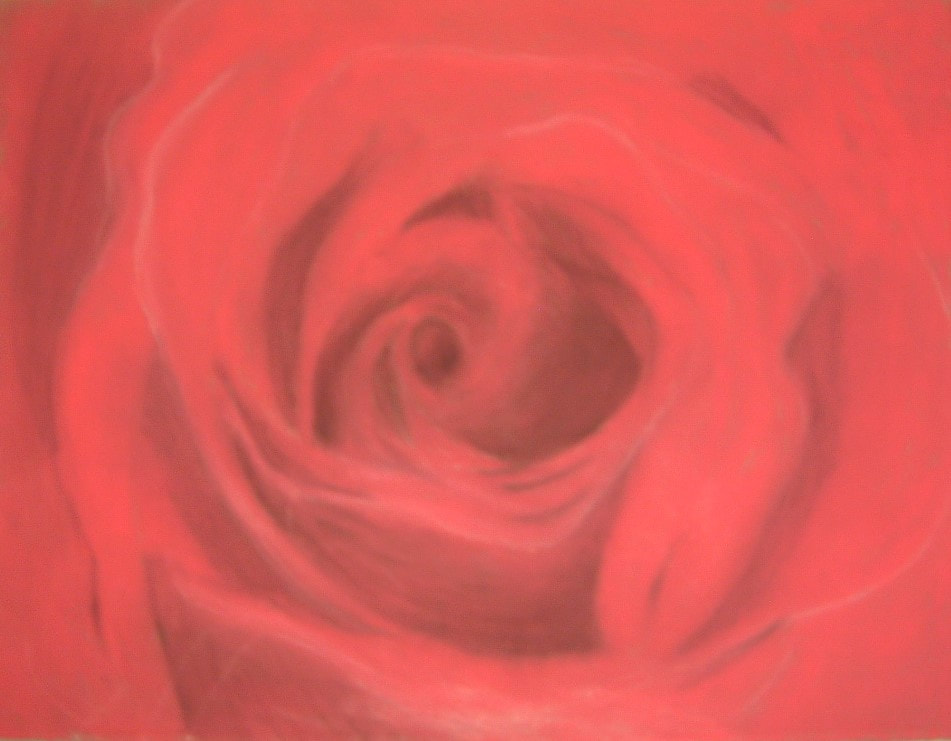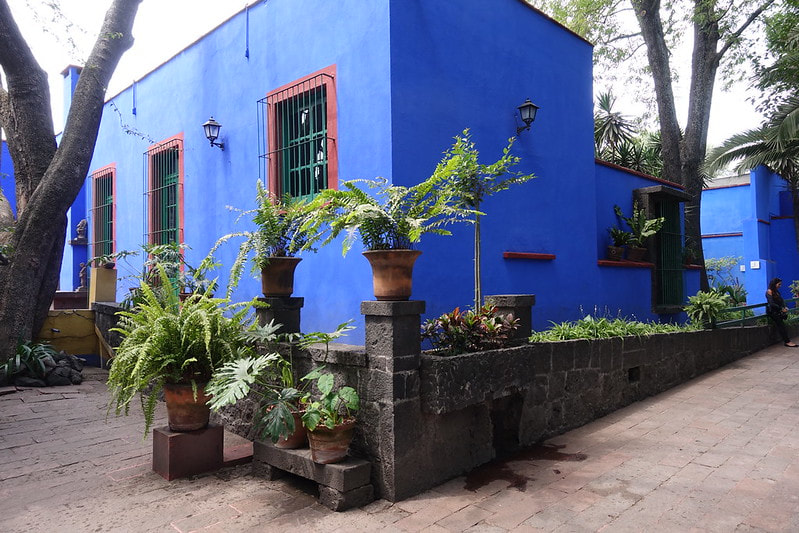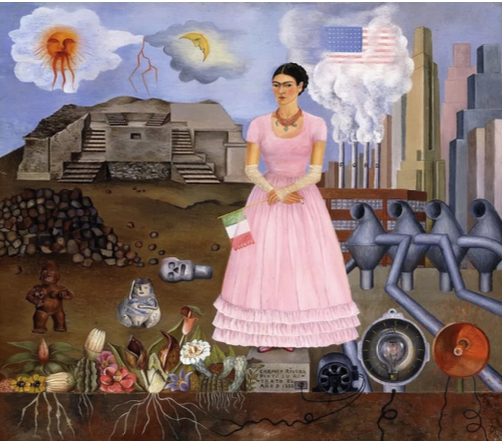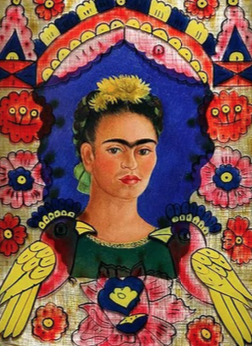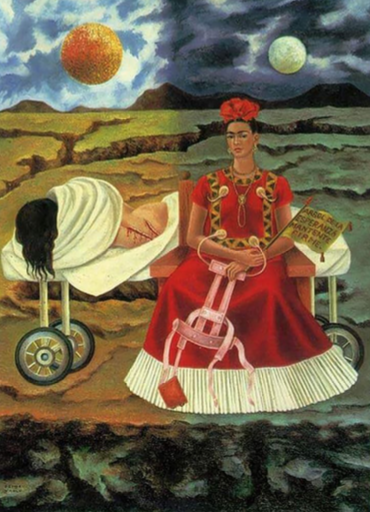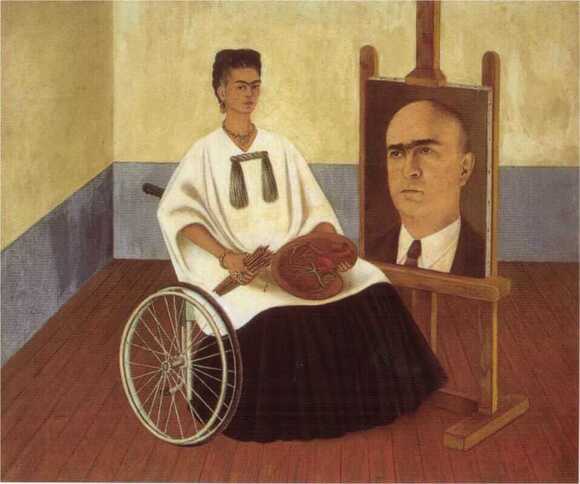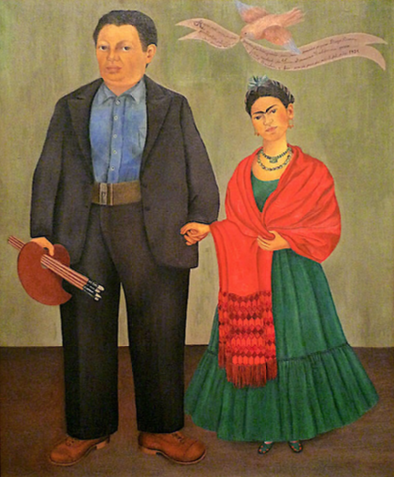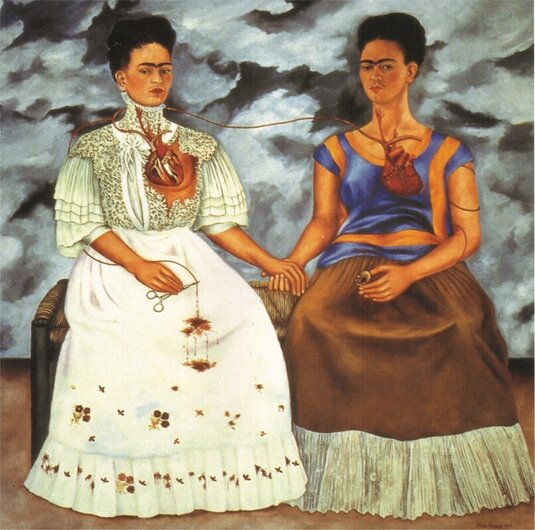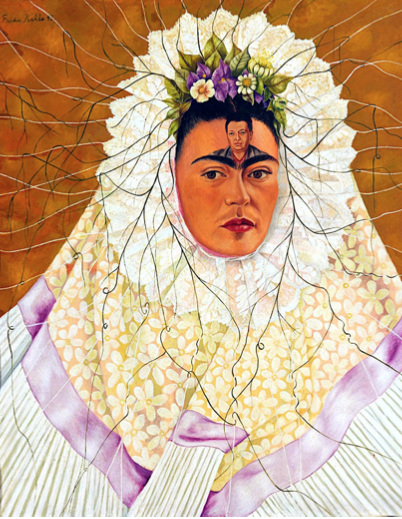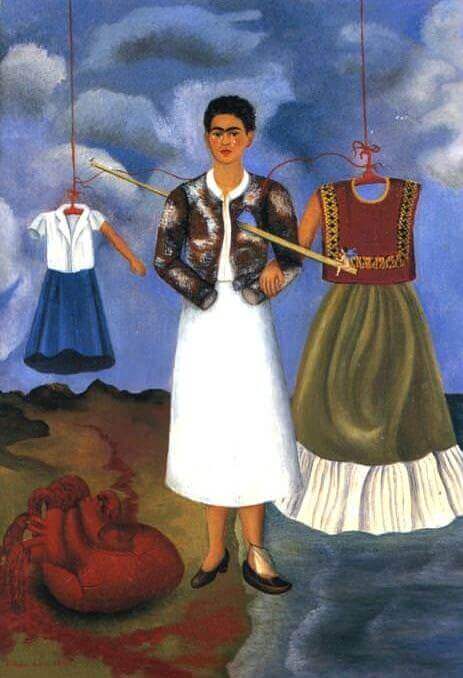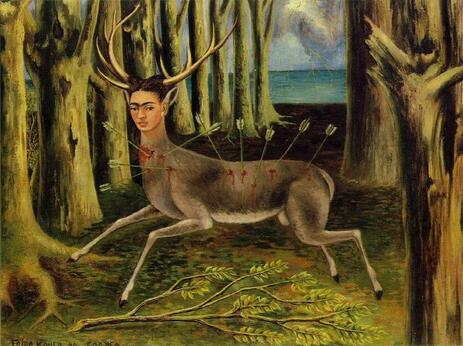|
On Albert Edelfelt’s Conveying a Child's Coffin Who looks at us is who we look at. We don’t look at the dead, then. We look at the child next to the child who is dead. Or, at least, the coffin, representing the child. Or, at least, we look at the child for a bit, then at the sea, how safe it looks, as if it is okay to die so young, as if all of this makes sense: the boat, the calm, the island, the deaths. Ron Riekki Ron Riekki’s books include My Ancestors are Reindeer Herders and I Am Melting in Extinction (Loyola University Maryland’s Apprentice House Press), Posttraumatic (Hoot ‘n’ Waddle), and U.P. (Ghost Road Press). He has received a Pushcart Prize, a Shenandoah Fiction Award, a Best Small Fictions selection, and been in several other anthologies. Right now, he's listening to Elbow's "One Day Like This."
0 Comments
When a View Can Eat You Up There are times when a sheep will stare at you and you stare right back, the big sky overhead, tussock waving on the hills and you hope no one is watching as you crouch down to stare at the sheep, hoping for some sort of connection and you remember the greasy lanolin feel of a fleece, the spinning wheel that bumped away from you until you got the hang of teasing the wool, picking out the burrs, the odd thistle, dreaming of socks and knitted vests and your old man in the kitchen heaping the wood range full of manuka logs and not looking at you because there was another woman he was thinking of and you in your anguish feeling the same as the ewe in the painting by August Schenck; a dead lamb in the snow, a circle of crows and beyond that the shadowy shape of wolves. Frankie McMillan Frankie McMillan is a poet and short fiction writer from Aotearoa New Zealand. Her work has appeared in Best Small Fictions and Best Microfictions. Her latest book, The Wandering Nature of Us Girls (CUP) was published in 2022. The Ekphrastic Review is delighted to hold a special ekphrastic showcase with selected works by Arrowhead Union High School students. You'll learn more about the ekphrastic project from the teachers and facilitators, below. The Review's task to select works to publish was a difficult one. We read carefully through each poem to get a sense of the author, to feel the engagement with the art they contemplated, and absorb the craft and creativity of the poem. Every single poem was astonishing. We congratulate every participant as well as every student whose poetry was chosen. We are most grateful to the team, including Liz Jorgensen & Terri Carnell, for reaching out to make this happen. The Ekphrastic Review ** A Note About the Arrowhead Union Ekphrastic Project, from Liz Jorgensen & Terri Carnell We teach creative writing to juniors and seniors at Arrowhead Union High School in Hartland, Wisconsin. To introduce our students to ekphrastic poetry, we played a short clip from Oregon State University. Students then listened to and discussed ekphrastic poems from the Katonah Museum of Art’s YouTube channel. Students noticed how ekphrastic poetry can be emotional, relatable, and subjective; how colour and texture can inspire writing; how a painting can add layers to poems; and how a story can be built from an image. The following class period, students listened to Edward Hopper Study: Hotel Room by Victoria Chang; The Dream of the Anti-Ekphrasis by Fargo Nissim Tbakhi; and The Kiss by Sasha Pimentel. Students considered the perspectives in writing ekphrastic poetry. In the subsequent class, students studied and discussed the following pieces of art, using prompts we provided: Enchanted Island, The Saints at Hampstead Heath, and House at Port Clyde. Students drafted poems based on one of those pieces and, throughout the next few classes, shared drafts with partners and small groups, before finalizing and submitting poems to writers’ markets, including The Ekphrastic Review and The Wisconsin Fellowship of Poets. We hope our study of ekphrastic poetry encouraged students to develop an appreciation for art and exposed students to another way to gain inspiration, begin a piece, or craft a poem. To see what is possible when art inspires writing. We hope you enjoy their poems as much as we do! Liz and Terri Jeff Anderson, student contest coordinator for the Wisconsin Fellowship of Poets said, The 2023 Wisconsin Fellowship of Poets / Woodson Art Museum Ekphrastic Poetry Contest is a collaboration between two Wisconsin artistic organizations, each understanding how poetic compositions may inspire artists and how art can serve as a catalyst for poetry. By challenging Wisconsin High School students to focus their literary talents on three featured art works from the Woodson collection, the WFOP and the Woodson each hope that students might begin a life-long excursion into using artistic media and poetry to further understand themselves and the world around them. Depression Like a Storm As the depression looms over all the land, Like the clouds loom over Port Clyde, Life gets tougher for Americans. As the depression blows away dreams, Like the wind blows down trees at Port Clyde, Life gets worse for Americans. As the depression rips away people’s way of life, Like the storm rips shingles off the house at Port Clyde, Life gets difficult for Americans. Great Depression continued on for One-hundred twenty months. Not comparable to a quick storm like at Port Clyde. Eventually Americans' hope was ALL GONE. Justin Heimsch ** The Storm An alert on my phone: “A big storm is coming to the port. Evacuate the area asap.” Scurrying, I pack up all of the essentials before leaving. When I’m walking out of my driveway I think to myself, this might be the last time I see the house my father made. Driving out of the area with no destination in mind, I wonder what will be left when I get back home. If I still have a place to call home. Another alert on my phone: “The storm has passed. You are allowed to return back.” Getting in my car visualizing, what will my home look like? I finally arrive back to where I grew up “WOW! It’s still here. I just have to do some organizing.” The rope we used to tie our boat is scattered in the grass, some wooden shingles on the house were disarranged, the crab traps are in the grass and some are broken. It needs a little fixing but grateful it is still standing Molly Jackson ** The House at the End of the Street The house looks dark, light a night without a moon. The red bricks on the chimney faded from years of sunlight. Telling us the story of the abandoned home, once a place where a family lived happily Now home to racoons, rodents, and mother nature. Driving by the house people on the see the surface, the dark, scary, abandoned home. But taking a deeper look you see what the family left behind. Photos from family vacations, furniture, an empty dog bed. A glimpse of the past: an idea of what the home was. Evan Kantorowicz ** Moonlight monotonous winds float the cape. overcast weather rained down. off color home fades away in the wind. nothingness spreads around the house. lobster nets destroyed. inky wood panels ripped off the house. grimy sky turns completely dark. heartstick sadness as things blow away. tragic darkness until the sky illuminates once again. Patrick Mcaboy ** Walking Past Port Clyde Walking down near Port Clyde I see the rotting house, it stands in the same spot. Ropes, lobster traps and buckles sink into the sand. Boards, shingles, and glass crack and warp with its age. Shadows lurk through the windows and ghostly noises haunt the house. I walk faster past the house, as if to run from what might be hiding inside. Joey Risch ** Hidden Strength The storm has finally gone, taking with it the crash of the thunder, and the scream of rain. The storm left only the eerie song of the wind, lingering like a ghost of the past. Haunting me as it whistles in the windows. My house is tired, she fought for so long protecting us from the enemy. With each gust of wind, she groans and creaks, but she stands strong. Despite her cuts, bruises, and broken pieces, she doesn’t give up. An image of beauty, and of pain. A reflection of human life; the battles our neighbors are fighting, unknown to us. The cracks in the foundation, Hidden by flowers and smiles. The truth that strength comes from battling the storm. Maggie Slife ** Summers in Port Clyde: Memories for My Grandchildren Surrounded by smokey pine, our wooden-shingled Port Clyde Cabin couldn’t have been a more beautiful place to relax in the hazy summer sun. Days spent splashing with the whales and sculpting sandcastles on Pemaquid Beach just couldn’t be beat-- especially when the day ended with a treat from the ice cream truck. My brothers and I would rush home, sand wedged between our toes, to meet our father after his hard days of crab, lobster, and oyster harvesting. We understood that he was done for the day, when his homemade traps were dumped like a pile of soggy rubbish outside the front door. Courtney Weston Contrast I feel so free as I fly around during this pink hour. The pink is dull. I feel so alive and notice two beautiful bone white logs. The logs from dead trees. A beautiful landscape on the horizon. No life in sight. An open sky with infinite possibility. A place where two lonely clouds reside. As people look at this art, They see what they want to see. They see what they feel. As one might see freedom, the other sees loneliness. Something so definite as an image. An acrylic painting on a blank canvas. Can be seen as anything to anyone. Art is truly enchanted. Dominic Gambatese ** Unenchanting Life Sometimes here. Sometimes there. I don’t really care. I drift through my life like I drift away to sleep, just like the driftwood on Enchanted Island. I try to smile and be nice but life is flying by fast, just like the seagulls over Enchanted Island. I chase a shiny nickel while opportunities flow by me, just like the sea surrounding Enchanted Island. Sometimes here. Sometimes there. I don’t really care. Sam Harrison ** The Edge of Magic The age of majesty and mystery has ended. Long ceased are the adventures of woe, the grand voyages and inspiring discoveries. Gone are the monsters, the magic, replaced with the ordinary; The seagull, the lowly bluffs. Monsters replaced with the regular, a different monster hiding in each one of our communities. Garrett Monis ** Late Early Morning The elegance and the bliss of the flat calm water, reveals images of the outcroppings of the island. The salty water cascades the fog just below the skyline, filled with the fading oranges remembering the sunset. The tide rises bringing in the baitfish, the seagulls and waterfowl circle. The sandbar is covered with water, the tide washes away what was left of yesterday. The clouds drift away in the distance pushing in front, the waves crash against the faces eroding away the past. Something brews, coming closer and closer. The sky darkens and the birds flee. The peace creeps away, the waves pick up. The late early morning fades away. Connor Olson ** The Island’s Mystery Cold to the touch, my feet dip calmly into the water. Dawn lay peacefully over the enchanted landscape. Gentle rays of the weak morning sun shone down, covering the rolling landscape, Dancing like a child on the water’s surface. Ankle deep, I see little movement, hear little sound. The lapping against jagged shores lull the birds passing by. I have joined them this morning, they don’t seem to mind; They swiftly fly past without sparing a final glance at me. I cannot know where they are off to. The wind bestows a stinging kiss on my cheek, I don’t have to look to see rosie tips of my ears and nose. Ahead, a serpentine branch weaves through the fine sand. Perfectly placed, imitates a skull, perhaps signifying more. Mystery encases this island, it surely knows more than I. Kathryn Ortmeier ** The Meaning of Three Three seagulls. Three seagulls frolick above the sea. The sea blazes with beguiling blue flames. The flames bewitch the harmonious, hypnotizing heavens. The heavens produce nothing but three. Three seagulls. Three seagulls perfect the enchanting islands. The islands paint a radiant, reflective sky. The sky gives its angels enthralling, celestial wings. The wings seek out the essence of three. Three seagulls. Three seagulls gaze at the depth of the water. The water sings intoxicatingly to the jagged cliffs. The cliffs remind the birds of their unique features. The features form into clusters of three. Harmony of the numbers-- Wisdom of the significant-- Understanding the meaning-- The meaning of three. Haley Podd ** The World Of Tomorrow My wings glide across the mirror reflective water. Complete, bitter silence. My crows echo their scream. The cotton candy sky deprives me of hunger. My claws dig into the rotted, isolated logs showered by nature's anger. My friends follow my tracks. Lost in the world of tomorrow. The canyons catch my incoming glide. All of this never ending space, just for us. An ongoing fantasy for endless miles. What is this place here for? It reminds me of a place I once knew. The sun rays beam on my white angelic feathers. My beak dips into the salty sea, with a bitter sensation. Lauryn Wulf Cycle of All Those That Live and Breathe A colossal crow stands on the man's left. Its feathers, as dark as the night sky. It stands tall, far taller than anything else. Its eye bore into the man, as if looking for the reason behind its existence. The man's skin is of a similar shade to the crow. White veins circulate through his head, pulling downward to attach to a set of feathers. A darkened halo stands firm above the man. He stares into the crow, pondering the same question. The wrapped cadaver is pale and ghastly. Only its face and feet are visible below the wrappings. Life is born from the remains. A plant reaching high into the sky, in the hopes that it will live a long life. The cycle of life, death, and rebirth is strange; as two of the three rely on the other. While the last pursues its own goals. Without fail this is the cycle that all beings go through, one cannot escape, nothing will prevent this fate. Laila Alvarado ** Death Bed I lay on the bed, with barely a beating of my heart left. Not sure if I will make it out alive. Hearing the quietness of my name. Hearing the muffled voices, they sink down to my inner core. They’re cold all the way down to the bone, something about it doesn’t sit right. The fight continues; a battle between good and evil. The voices contradict each other's every thought. I don’t see an end, yet all I want is an outcome. My mind is at battle with my body, trying to save that little ounce of life. Trying to hold on to something that used to thrive. Can’t they see I still have a life to live? Chayse Farris ** A Last Breath At Hampstead Heath A massive crow looks down at a man, who attempts to reason with it. He wears the wings of some animal from his ears. They form together to make a distinct face at the man’s knees. There is a body on the ground, prepared for burial. A plant springs forth from his stomach. This plant is reborn from his death, new life abounding. The dead man will possess none of it. The crow, flocking to a body as usual, has likely come to collect its due. As the personification of death, it must collect fresh souls. He seems to be discussing the fate of the dead man with the one who remains. The man bears a robe and symbols, guider of the souls. He dresses importantly, with a solitary braid running down the back of his head. The tattoos on his face hold a deeper story, though. The colours paint a beautiful picture of the surrounding world. The orange is vibrant, showing fall to any who happen by. But the ground holds a person, all the more important. Soon, the earth will hold him until he’s gone. Ben Harkavy ** Life or Death I lay, immobile, at the foot of two figures. I cannot see them but I know they are there. I hear faint exchanges of voices, making decisions for me. I lay, dormant, unable to wiggle a finger. My freezing body waits for deliverance, but I am impatient. I lay, powerless, incapable of resistance. The chatter grows loud, my thoughts louder, my eyes open, to dark and light, two large figures day and night. The taller figure glares at me, his eyes like an abyss of white. When he sees me, a grin forms on his face. The smile digs into me like a thousand daggers. This can’t be real; I must be dreaming “Oh it’s real all right,” claims the man. Riley Kloth ** Journey to Valhalla As she looks at the lifeless body in the sand, the shadow of a giant winged figure appears in the sky. She turns around to see a giant bird in the sky, the winged creature begins to dive in her direction. As it landed close to her lifeless body filing sand around, She stares at the bird for a minute, not taking her eyes away. the bird examines the dead body in the sand seeing every detail, then looks back at her with its menacing, white eyes not red. The mysterious bird finally spoke to her with a familiar voice, Its name was Muninn, one of the All-father’s ravens. The woman asked if she has reached Valhalla, The raven only shook its head and said no to the woman. The raven said only Forseti can determine if she is worthy, It pointed to its right then said his temple is in that direction. Then the raven flew away leaving her to walk the desert alone, After walking for miles, she sees a temple in the distance. She is filled with joy to finally reach the temple of Forseti, She was getting closer to the temple with every step. But as she got closer and closer to the temple, It revealed itself as just a mountain, at that point she lost hope. Logan Probst ** A New Life I lay quietly now, like the hush during a funeral. Father stands lofty, towering over mother. Her halo darkened with each passing second. They talk; no, they argue. What happened? I lay quietly now, they do not know I can hear. Their words have led me to my fate. Ombre tangerine orange into bloody crimson surrounds us. They argue quietly now, as to not wake me. Don’t they know I’m dead? I will remain here for now. My ghostly skin, pale complexion obstructed by the second. My life may be gone now, but a new one appears. Roots deep yet thin, emerald green emerging from within. He is death, she an angel. But me? I am old, I am new, I am dead, yet I am alive all at the same time. I draw my final breath now, this seedling needs to blossom so they know. Eva Sevcik ** Onto The Next: The Life After Death “I’m sorry to ask but how many?” “All seven, I’m afraid.” The world around him turns to the brown, red, and yellows, of dirt. A sense of dread but also expectancy hung in the air. “I’m sorry, but it is time to go now.” The crow of death spread its beautiful yet terrifying wings. The man took a deep breath, as he knew where he would be going. He climbed onto his black and iridescent back. The crow let out a screech-like caw and they took off. The body of the man left behind in the dirt, ready to return to the Earth. Look closely and you will see a small sprout, a new life is just beginning. With one death another life begins. The circle of life they call it, being born into a new world, growing up and growing old, returning to the Earth from once you came. Lauryn Vierck Gravity Moving rapidly. Joined but not connected as if the human race cannot focus on being human. Our speed propels us away from each other into impenetrable solitude. Where are we you ask? Where indeed. Close as a whisper. Distant as a moon. I have slowed my progress. Tell me your story, Speak clearly. My ears are tuned. Our heartbeats swirling around us, Not vague. Not dense. What must I do to convince you? Tell me now before gravity disappears. Tim Pompey Floral Arrangement How I long to be embraced and pillowed. The harshness of the world has chipped my edges and left me with bloody feet. But here in your soothing bowl I could happily fall asleep . Swallow me with softness. Let your copper chalice cushion my head. Change my metal from solid to airy, from rust to angel wings, and in my encumbrance, create the will to be open and beautiful. Tim Pompey The Gods Must Be Angry And who could blame them? As if we have an obsession with punishing ourselves. Still, in their long-term thinking, someone high and mighty screwed up. Badly. And here is the dilemma: to live and let live, or live and let die. Either way, creation is their bubbling stew pot. If the gods are watching, are they also planning? Is a do-over allowed, or do gods live in gated communities? A helpless feeling knots my stomach as we all ride helter skelter toward a train wreck. What to say to an angry god? When the threat of hell does nothing? When a future of destruction is dismissed? As if being angry will change anything. As if the gods haven’t endured patiently. As if the human race has absorbed more than a faint clue about the etiquette of divineness. Tim Pompey These poems and photographs are from an artist writer collaboration called Imaginari. Get a copy on Amazon, here.
Tim Pompey is a news writer, musician, novelist, and poet living along California’s Central Coast. He holds a B.A. in Sociology, an M.A. in Theology, and an M.Div in Pastoral Ministries. He has published several books of poetry, including Desarroi, Shadow Country, Poets and Samurai, Eyes of Distinction, and Radii. Nancy DeLucrezia is a photographer, watercolour artist, writer, teacher, gardener, business consultant and Somatic Therapist living off-grid in the rainforest on the Big Island. She attended the State University of New York as a photography major and has studied painting privately with several gifted artists in California and Hawaii. Don’t Look ‘Em in the Eye My mother, arms akimbo, one elbow, the tip of a sharp triangle angles down to her hand, resting indignant on her curved cocked hip. One bowed, black, kid pump inches from tapping out her aggravation. The newspaper tucked unnoticed in her arm’s crook. Secrets slipped stumbling, as I pet my wire puppy, “I’m not afraid of the dark.” Accidentally plunk, “I never wet the bed.”, into shimmering silence. All eyes are on me I gaze with trepidation into the distance. My hands pick distracted at my found watchdog collected as I skipped alongside my mother, short pants catching the still July ruffle created by my swinging arms. The air vibrates disapproval. In the window with the sign, the landlady looks on. Without looking, I see her look Hear the suck of my mother’s teeth. Wait – for the moment when the hand on hip darts out, snatches my hand, tugs me down the street leaving the crumpled paper and my precious puppy dog Below the abandoned window. ** Mother and Son In predawn wakefulness, the distant hum of Harlem drifts through the barred open window. Already dressed in funeral black, eyes dry, head down, I sit in the vacant living room. My mother’s strut shimmers in the photo. Her stance familiar, her akimbo arms, her hand resting indignant on her curved cocked hip. The bowed black kid pump inches from tapping out her aggravation. She is young, not greyed and worn Like the furniture around me. Tension, I don’t remember, emanates in black and white. I feel the warmth of my hand in hers. Skipping along, I glowed – Her vibrance, coursing like Oshun’s rivers. Every day at daybreak, she rose, fierce, challenging the day, blowing her steel into me. Enduring the tales, I wove over the unnoticed wash and piecework that littered our furnished rooms. LaVonne France LaVonne France is working on emerging as a poet. Her poetry appeared in the National Library of Poetry Anthologies, Between the Raindrops, and The Best Poems of the ‘90s. As an African American female, her poetry focuses on love, loss, family, and racism. LaVonne is a retired Chemist, Forensic Toxicologist, and Pharmaceutical Project Manager. Her love of poetic language was cultivated at an early age. Watermelon of Forgiveness My devotion consists of watermelon seeds, juice seeping from foam, thanks to the saint of forgiveness for the time I threw a ten-pounder across a patio where it ruptured against a tree, roots bloodied. Thanks to the flowers that made the fruit, a scrambling trail with keyhole leaves larger than the head-shaped bulb. Devotion to sweet flesh holds no hardness despite the rind, no bitterness against internal division, no judgement for a wild stripe leading towards musk green, fatty pear, powdered sugar, no doubt in a hammock-picnic or a motorboat lake with sunburn aloe. My thanks are unharvested trivial stitches that can’t hold a watermelon together, decorative cut edges with seeds dark enough to shine in the sun, honest soft crumbled, fertility crushed with years. Devotion to the prism of forgiveness demands the north wind wait for the harvest. Laurel Benjamin Laurel Benjamin is a San Francisco Bay Area native, where she invented a secret language with her brother. She has work in Lily Poetry Review, Burningword, Eunoia, Glassworks, South Florida Poetry Journal, Fourth River. Affiliated with the Bay Area Women’s Poetry Salon and Ekphrastic Writers, she holds an MFA from Mills College. She is a reader for Common Ground Review and has featured in the Lily Poetry Review Salon. Join Meg Pokrass and Lorette C. Luzajic for a grab-bag of curious ideas from visual art and creative writing prompts. Let your new microfiction stories surprise you as you leap from the unknown. Our workshops give you positive space to explore, experiment, stretch your imagination, try out new voices and styles, get creative, and have fun. Peer discussion and feedback and positive, constructive suggestions from Meg and Lorette will help you launch brilliant new stories! You will create at least three new stories and have ideas and prompts for many more. January 20, 21, 22, 2023 $140 USD ($185 CAD) "I cannot recommend Lorette and Meg's courses highly enough... a dream team!” Jane Salmons, author, The Quiet Spy Click on image above to sign up at workshop site. Little Boy Kissing the Snowman I found a photo of you yesterday, you and a snowman of companionable size, a snowman round and dandy: blackberry eyes to give the twinkle, orange gumdrop set to make a nose, and chocolate licorice in one long strand shaped into a smile, broad, uncomplicated. In this picture your round cheek is gently pressed against the clean field of the snowman’s temporary whiteness, lips pursed, small and devout. It might have been a January day, the snow looked newly fallen. Everywhere was white. No sky, no ground in this old photo. Just you, a winter’s afternoon unbroken, and a man made simply out of snow. Helen Bournas-Ney Helen Bournas-Ney was born in the island of Ikaria, Greece, and grew up in NYC. She wrote poetry years ago, and completed a study of the Greek poet Seferis and Rimbaud. She then spent time raising a family and running a Learning Center. Recently (and happily!) she has returned to writing poetry again. She loves ekphrastic poetry, mythological themes, and lately, exploring prose poetry. Her work has been published in The Ekphrastic Review, Plume Poetry, Ergon, One Sentence Poems, Mer Vox, and the anthology Plume Poetry 7. Her poetry was nominated for Best of the Net 2021. pink coal depths it was your last spring in high school and you were showing me three and a half months of your work when a rose, open-faced cradled shadows on a heavy piece of paper, gray when I turned it over to make sure you’d signed your first with pastels vivid pink coal depths and now there’s no other way to unfold but intensely and I more than liked it and I meant it but I don’t think you believed me it was the kind of thing I would put on my wall and I meant that too but never said it before so you gave it to me and our hands were pink but I didn’t want to rob even a smudge so I asked you to keep it until you could spray it put but we forgot and it outlasted you and my anger for you when it found me rummaging your portfolio and unfolded me again Becky DeVito Becky DeVito has used poetry as a means of making sense of her family's tragedy, which culminated in the deaths of her father and brother. Her doctoral dissertation investigates the ways in which poets come to new insights through the process of drafting and revising their poems: http://www.thehaikufoundation.org/omeka/items/show/2393. She is a professor of psychology at Capital Community College in Hartford, Connecticut. Her poetry has been published in bottle rockets: A Collection of Short Verse, Frogpond, Modern Haiku, Ribbons: Tanka Society of America Journal, and others. She is currently working on a novel series. Please join her on Twitter: https://twitter.com/DevitoBecky. La Casa Azul- The Blue House Early into the trip to Mexico City I had taken with my mother and sister after the death of my brother, we left our mother to read in her sultry, unairconditioned room. My sister had booked a hotel without handicap access, and so we left her there, my mother’s steely blue eyes locked with mine as she said she’d be fine. My sister and I found our way through the maze of narrow corridors and the richly ornate red tiled lobby of The Best Western Majestic Hotel in Plaza de la Constitución and stepped outside to encounter a group of local priests, the same ones who had told my mother yesterday they felt slighted by the Vatican and continued to hold signs of quiet protest while they sat, hunched on the curb. The gray smog filled sky hung like a weight pushing us closer to the street gutter openings, which contained a pungent excreta odor wafting upwards to meet the air . . . with us pressed somewhere in between. We turned the corner and headed to La Casa Azul. I knew nothing of Frida Kahlo except that she was a famous Mexican artist. I wanted to tell my sister that I wished I had stayed holed up in the hot hotel room reading a mindless book, . . . but we were here. The bold and not quite blue hyacinth colour seemed dismissive and gaudy next to the natural surroundings, and the sky, a faded egg-shell blue at the top, divided one side and drew my attention. Neither of us spoke. Etched in what looked like stone: 1929-1954, above a Alice in Wonderland-type door, dark forest green, alluring and foreboding. Another door came immediately to mind: a door where, back when my brother existed, he had once said, “Hey, I guarantee I have the ugliest sister – look!” The house door locked as I stood in an empty garage, and then he dashed away. Back to the Blue House- Museo Frida Kahlo – its blue too loud. I glanced at my sister – no, her psyche would not suck me in. Enclosed courtyard – greener than flower stems, but blue dominated – both bold and reticent – confidant and desolate. The sun – icy hot ...absorbed the chartreuse pink flowers that rose from the blood-red floor. At first, we explored the house together – wandering through each room – then my sister was gone – evanescent. I wished I taught English Literature – not Hester Prynne and the Puritans who stood too tall with all their judgment. I stared at the metal wheelchair – the prison- and then the sun. So hot – brutal. In her studio, aged paints and weather worn pottery sat still and neat, clashed with the Mexican Revolution, which reflected her battled body after the accident. After my brother’s accident, I learned he had been wearing two watches. “Why was he wearing two watches?” I asked my sister on the phone. “Throw them away,” my sister said. The phone clicked. The series of self-portraits . . . the unibrow over hollow eyes enclose the courtyard . . . bright coloured leaf greens, red orange scarves, and a dull turquoise blouse. What message does the dove bring to her lover Diego Rivera, and why does it hover over her head and not his? She almost holds his hand, but he has the paint brushes. She tilts her head toward him. Alongside the painting are words I asked my sister to interpret, and she gave me a general interpretation since her Spanish was weak: “Autobiographical testimony of Frida and Diego of her love of México of her personal universe of her indigenous culture, live pre-Columbian and popular art daily realization of her suffering and her happiness encompass her work artists Mexicano and universal” Next picture: old, dried blood. I wanted to turn my head – partial babies float over a blank stare – broken pieces tether, but drift. I read Frida’s quote: “I drink to drown my sorrows, but the damned things have learned to swim.” “Get him!” My mother’s yell had echoed over the ice arena. I laughed and watched my brother try to follow me, but the ice leveling machine seemed to close in on him. “Shame on you!” My father’s voice joined in as my mother panicked to see such a little guy in the open space. My brother called out my name. I joined him and the rest . . . a silent car ride home. My parents sat in the front seat like a jury. The Two Fridas. Which one? Again, tethered together, one with scissors slipping on an ivory dress – dark dried blood stains – and one holding her lover’s picture – both hearts on the outside reaching upward to the hollow eyes – two Fridas holding hands. “Can you speak a little louder? I’m having trouble hearing you,” I said. Diego in My Thoughts. In this self-portrait, Diego Rivera materializes in her forehead. Daisies like flowers with purple petals surround him. This time her eyes shift away, and crack like strings fill the open veil. Where is she looking? What does she see? He is in her head but perched, not blended. I stood outside my brother’s bedroom, riveted once again. For three hours, he lay in the same position – lining up his toy soldiers. Somehow, he answered the phone, the last time we talked. “Did you know I finally read The Great Gatsby? My history students kept telling me to read it, and I finally did. I liked it.” I saw him line up the Union and Confederate soldiers again, that scene in his bedroom from long ago. He rearranged and reordered them over and over again... I wondered how much he knew about Mexican history within the context of his American history specialty; if he did, he would have learned their voices somehow – looked at primary documents to study, and then have them tell their story. In Memory hang two dresses. I can’t see my sister or me wearing either one of them, but we couldn’t anyway because they are tied to her, to Frida. These orderly looking dresses each have one arm extended out of opposite sleeves. The hanging rod for the dresses goes right through where her heart should be; it’s missing. Her white tears contrast the dark skin, and the glob in the corner is covered with brown blood and claw like accessories. Her pure white dress is without blemishes, and her eye lids droop. In a photograph in my mother’s home, she’s holding my brother while I’m looking away as we stand on the ocean shore. The police report said he hit a tree. More trees in The Wounded Deer. A large body of ocean like water appears in the distance. Spidery lines slash over the cloudy white clouds that meet the water. The deer’s body is disproportionately on the path, and even though arrows pierce the skin and draw blood, a rather definite looking Frida-face replaces the head. The pointed antlers curve upward and spring from her hair. She’s still there, after the loss once again of a fetus that can’t survive. The end of the tour brought me back to this painting. The tree trunks frame a window. If the deer would only turn, what would she see? Three layers of colours, perfectly balanced, except for the weeping willow like clouds line up from dark brown, to blue, to part of the whitish clouds. The water stands still, though. After school, my brother stood waiting at the bay window in the living room for my sister. I told him it would be at least an hour, but he waited for her anyway...for my sister to get off the bus at the top of the hill and walk down. He didn’t move . . . just existed there- still. "Here, look in here!” Long ago, my brother crouched beside me in the basement of our home as we peered into a little black hole in the back of an old judge’s bench my father had brought home. “The elves live here, see?” We both stared for a long time... I knew he saw them. We should have held hands and gone in together. Donna Canan Donna Canan lives in St. Louis, Missouri and teaches English at Kirkwood High School. She holds an EdD in Instructional Leadership and won the NCTE Paul and Kate Farmer Award for her article in the English Journal entitled "I Hear America Sing: Promoting Democracy through Literature." |
The Ekphrastic Review
COOKIES/PRIVACY
This site uses cookies to deliver your best navigation experience this time and next. Continuing here means you consent to cookies. Thank you. Join us on Facebook:
July 2024
|
